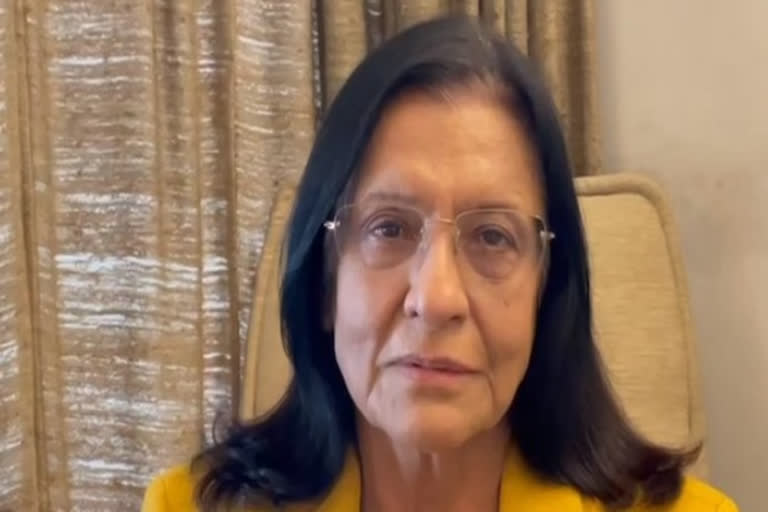New Delhi: An estimated 2.3 million people developed cancer in 2020, and 1.4 million died of the disease in South East Asia. Cancer is estimated to account for more than 20 per cent of premature mortality from noncommunicable diseases (NCDs) in the region, which stand at around 4.7 million deaths every year, said Dr Poonam Khetrapal Singh, WHO Regional Director for South-East Asia on Saturday.
“In 2020, cancer of the lungs, breast and cervix accounted for 4,00,000 of the total number of cancer-related deaths in the region, and almost two-thirds of people diagnosed with cancer succumbed to the disease, highlighting the urgent need for improved early diagnosis and treatment,” she said in connection with World Cancer Day.
The Indian Perspective: Estimated cancer cases and mortality in India have increased between 2020 and 2022. According to the National Cancer Registry Programme of the Indian Council of Medical Research (ICMR), the estimated total number of cancer cases in India from different states and Union Territories in 2020 was 13,92,179, which increased to 14,26,447 in 2021, and subsequently climbed to 14,61,427 in 2022.
Dr Khetrapal, however, said that since 2014, the South East Asia Region has accelerated action to prevent, detect, treat and control cancer, with an increased focus on eliminating cervical cancer as a public health problem. “Eight countries of the region now have in place population-based cancer registries (PCBRs), and three countries--Myanmar, Nepal and Sri Lanka--are focus countries for addressing childhood cancer. Ten of the region’s 11 member states provide tertiary care services for cancer diagnosis and treatment, including surgical and chemotherapy services, and nine also offer radiotherapy services,” she said.
She said that WHO continues to support countries of the region to implement its new Regional Action Plan on Oral Health 2022–2030, including oral cancers, which in 2020 were among the top five most common cancers, accounting for 7.4 per cent of new cancers. “Five countries of the region--Bhutan, India, Myanmar, Sri Lanka and Thailand--now have in place national cancer control plans, which Maldives and Nepal are in the process of finalising. The region is currently on track to achieve the WHO NCD Global Action Plan target of a 30 per cent relative reduction in tobacco use prevalence between 2010 and 2025,” she said.
On cervical cancer, the region is achieving rapid, life-saving progress. Five member states--Bhutan, Maldives, Myanmar, Sri Lanka and Thailand--have introduced nationwide HPV vaccination, which Bangladesh, India and Timor-Leste are also set to introduce. “Indonesia has introduced HPV vaccination in several provinces, covering tens of millions of girls. New evidence shows that a single dose of HPV vaccine delivers protection comparable to the 2-dose schedule, which alongside additional cost reductions, should enable countries to reach every woman and girl,” she said.
Dr Khetrapal said that to accelerate progress and close the care gap, the region has several priorities. “First, introducing and expanding HPV vaccination in routine immunisation to prevent cervical cancer, covering at least 90 per cent of adolescent girls. At the same time, the region must continue to facilitate healthy lifestyles, including by not just legislating but enforcing key tobacco control measures such as health warnings and bans on tobacco advertising, promotion and sponsorship, as well as by raising taxes on tobacco products,” she said.
Second, increasing capacity at the primary health care (PHC) level to detect cancers early, with a focus on intensified health workforce training, improved infrastructure and resources, and streamlined referral pathways for prompt initiation of treatment. In all countries, PHC physicians and nurses must be equipped to provide palliative and end-of-life care close to patients’ homes and families, within the community, Dr Khetrapal said.
